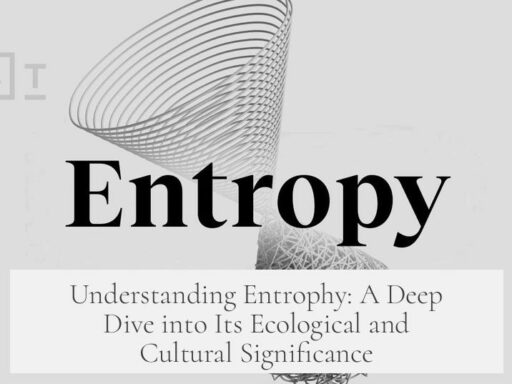Emily Wilson’s new translation of the Iliad vividly brings Homer’s strange and brutal world into the English-speaking present, capturing the poem’s raw emotional depth and timeless existential themes. Her version renews the ancient text’s power by highlighting human crisis, mortality, and loss amid the backdrop of a doomed city. This approach resonates strongly today as humanity confronts planetary challenges and its fragile existence.
Wilson’s Iliad treats death and loss with stark honesty. It reminds readers that everyone faces mortality and the inevitable loss of loved ones. The poem compels readers to confront this reality anew, revealing the universal sorrow and anger tied to human suffering.
This translation also stands out artistically and linguistically. Wilson uses meter, unlike most previous English translators. Her choice preserves the rhythm and flow of Homer’s original Greek verse, offering a poetic experience closer to the ancient text. She actively engages with prior translations such as Lattimore, Fagles, and Lombardo, pointing out how her version removes unnecessary “padding” and improves clarity.
- Compared to others, Wilson’s translation is more accessible.
- It avoids the heavy difficulty present in some respected versions.
- Her rhythm and word choice maintain the narrative’s energy.
Wilson’s translation has garnered enthusiastic reactions. Readers appreciate the freshness she brings to Homer’s text and the emotional clarity of her phrasing. Many who loved her Odyssey eagerly awaited this Iliad edition. The audiobook, narrated by Claire Danes, exemplifies the translation’s engaging qualities, pairing mood and meter effectively.
Within the broader world of modern Homeric translation, Wilson’s work occupies a key position. It is often compared favorably with Caroline Alexander’s Iliad and other contemporary adaptations. Her version complements poetic retellings like Christopher Logue’s “War Music” and Alice Oswald’s “Memorial,” which offer vivid, condensed portrayals of Homer’s brutal scenes. These diverse works show a lively ongoing dialogue about Homer’s legacy.
However, the Iliad’s original text can challenge readers. Some find passages like the long lists of ships tiring or overly detailed. Wilson’s translation alleviates some of this difficulty through clarity and omitting excessive elaboration, though it does not shy away from the poem’s length and complexity.
| Aspect | Wilson’s Translation | Others (Lattimore, Fagles, Lombardo) |
|---|---|---|
| Use of Meter | Yes, preserves original rhythmic structure | Mostly no |
| Clarity | Accessible, straightforward | Varies; Lattimore hard, Fagles padded |
| Emotional Impact | Strong, unflinching on mortality and loss | Varies |
Emily Wilson’s translation revitalizes the Iliad, bringing its intense emotions and striking imagery to contemporary audiences. It helps readers face the harsh realities of human life with the same courage and sorrow Homer’s world reveals. In doing so, Wilson demonstrates the poem’s undying relevance in modern times.
- Wilson’s Iliad bridges ancient and modern worlds through meter and clarity.
- It highlights timeless themes: mortality, loss, and human crisis.
- Her work improves accessibility without losing poetic power.
- Readers and critics praise the fresh emotional and linguistic approach.
- The translation fits into a broad modern conversation about Homer.
Emily Wilson’s New Translation of the Iliad: Bringing Homer’s Strange and Brutal Beauty Into Our World

Emily Wilson’s new translation of the Iliad masterfully transports the ancient Greek epic into the English-speaking present, capturing the raw and brutal beauty of Homer’s world with fresh emotional depth and linguistic skill. She does more than translate words; she revives the haunting pulse of a dying city and the immense human loss tangled in its fate.
Why does this translation feel so urgent now? Because Emily Wilson’s Iliad echoes the crises we face today—not just any crisis, but one that threatens life on a planetary scale. Her work invites us to witness a city doomed to destruction, a world soon to be wiped away — much like how we watch our own environment teeter on the edge. It’s a sobering mirror held up to an ancient tale, reflecting the heartbreak and fragility of human existence.
The Heartbreaking Reality of Mortality and Loss

Wilson reminds us of an uncomfortable truth: death is inevitable. You, your loved ones, everyone you know, will one day be gone. This truth is central to the Iliad’s power. The poem explores grief in all its forms—anger, bargaining, prayers—all futile in the end. Her translation forces readers to accept this hard reality again and again, but in a way that feels intimate and immediate, as though discovering it for the first time.
Imagine living in a city on its last days, with the rivers rising and flames swallowing the walls. That’s the Iliad’s world, seen through Wilson’s eyes. She doesn’t sanitize the brutal truths; instead, she embraces them, making the ancient Greek chaos just as personal and urgent as today’s headlines.
The Art and Craft Behind Wilson’s Translation

Translating Homer is no small feat. Even Greek speakers admit, “I have no idea how someone could translate Homer into another language.” Yet, Wilson rises to the challenge with extraordinary skill and artistic sensitivity. Unlike many translations, she uses meter that echoes the rhythm of the original text, adding a poetic music often lost in other versions.
Her translation stands apart from others by avoiding “padding,” a problem critics find in Fagles’ famous rendition, and presenting clearer language than Lattimore’s, which is frequently harder to understand than the Greek itself. Wilson’s approach reveals fresh nuances and sharpens the emotional power of Homer’s lines, inviting readers to hear the story anew.
Why Readers Are Excited

- Many readers express pure enthusiasm: “I’m thrilled to dive into this Iliad after loving Wilson’s Odyssey!”
- Fans eagerly pre-order paperback and audiobook versions, praising the perfect pairing of Wilson’s words with Claire Danes’ narration.
- University talks and public lectures by Wilson are hotly anticipated events in the literary world.
Clearly, Wilson’s Iliad isn’t just for scholars or classicists. It speaks to people hungry for a new way to engage with a millennia-old story—one that feels close, emotional, and urgent.
Contextualizing Wilson Among Modern Homeric Voices

Wilson’s translation invites comparison to other modern adaptations, like Caroline Alexander’s Iliad and John Dolan’s campfire-style version. Fans praise the variety, finding unique voices that resonate in different ways for different readers.
Poetic replies to Homer, such as Christopher Logue’s War Music and Alice Oswald’s Memorial, further illustrate the ongoing impact of the Iliad’s brutal imagery and tragic themes. Oswald’s vivid descriptions of death and loss echo the very “strange and brutal beauty” Wilson highlights.
Facing the Challenges of Homer

Of course, the Iliad isn’t an easy read. Many find long passages about Greek ships and battles exhausting—“soul-crushingly dull,” one reviewer said. This difficulty explains why some suffering through the original deemed life too short for such lengthy, repetitive sections. But Wilson’s clarity and poetic grace help make the text more accessible without sacrificing its complexity.
What Makes Wilson’s Iliad Different? A Summary

Wilson’s new translation:
- Brings the emotional and existential weight of Homer’s ancient world to modern readers deeply concerned with human survival and loss.
- Uses poetic meter to echo the original’s rhythm, cutting out unnecessary padding and clarifying difficult passages.
- Evokes a living, breathing world full of triumph, tragedy, and the bittersweet knowledge of mortality.
- Reaches a broad audience eager to experience Homer’s stories with fresh immediacy, through printed page or audiobook.
Her work resonates because it honors the rawest human experiences—grief, rage, hope—rooted in a world trembling on the edge of destruction. Isn’t it fascinating that a tale written nearly 3,000 years ago can still feel so vital and pressing today?
Want to Try Wilson’s Iliad?
Here’s a tip: start with the audiobook version read by Claire Danes, widely praised for capturing the poem’s mood and tension. Then, pick up the paperback to savor Wilson’s precise language and meter. You’ll witness how ancient voices sing again, startling and familiar.
And one question to ponder: Why do stories of old, written in a dead language long ago, still grip us with such power? Wilson’s Iliad offers a partial answer—it’s because human struggles with loss, death, and survival transcend time. Her translation is not just a linguistic achievement; it’s a bridge connecting us to that strange, brutal beauty of Homer’s world, right here and now.




